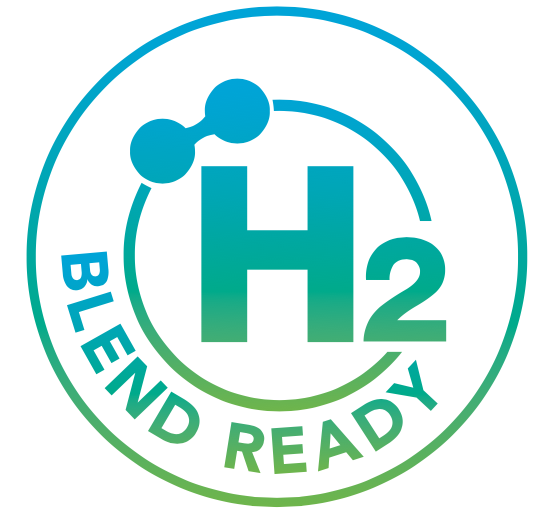Hydrogen is one fuel being considered as an alternative to fossil fuels for heating homes in the UK. To prevent the worst effects of climate change, there is a global target to become net zero by 2050. Net zero refers to a state in which greenhouse gases entering the atmosphere (the drivers of climate change) are balanced out by their removal from the atmosphere.
In 2026, an evidence-based decision will be made as to whether hydrogen can be introduced as a low-carbon alternative to natural gas.

Current testing:
In recent years, the UK has been trailing and testing hydrogen blends in homes. Winlaton in Gateshead was the first area to receive a hydrogen blend through the public natural gas network. The project started in August 2021 and ran for ten months.
During this period, some 668 homes, a school, several small businesses and a church ran on natural gas, which was blended with 20 percent hydrogen. The purpose was to assess the possibility of reducing our reliance on fossil fuels for heating. This project was deemed a success – which has been a key milestone along the long, complex road to possible low-carbon hydrogen heating.
However, these testing projects didn’t go without issue. The government cancelled two further village trials planned to assess hydrogen viability in up to 10,000 Yorkshire homes following strong public opposition from residents in Whitby and Redcar—the areas earmarked for this testing.
Following this backlash, the government is gathering evidence from other sources and investigating alternative methods for home heating decarbonisation.
One remaining trial will take place on the coast of Fife, where 300 properties will be converted from natural gas to green hydrogen. This project is set to start in Summer 2025. The results from this trial will help the government make a final, informed decision about whether there is a future for hydrogen heating in the UK.
In other countries:
While the UK has not ruled out hydrogen, it has not made the same progress as other European countries. Germany’s gas transmission operators have submitted a joint application for a planned hydrogen core network to the Federal Network Agency, which is due to be completed by 2032. This aims to introduce hydrogen-based energy into sectors where electrification is not an option. The Netherlands is running two trials of domestic heating, including one exploring a hybrid heat pump.

Hydrogen blending – a halfway point:
As an alternative to pure hydrogen, at least for the short term, blending up to 20% volume of hydrogen into the UK gas network is both realistic and attainable. It will make a positive leap towards decarbonising the complex gas network.
Blending will mean less disruption for end consumers as many appliances are already compatible with running on hydrogen blends. Installing hydrogen-ready appliances that can, at a later stage, be converted to run on 100% gas could be the way forward – for the short term at least. Many gas fires in the Charlton & Jenrick range are already converted to run on 20% hydrogen.
Considerations:
We can’t discount hydrogen heating yet. It still has the potential to decarbonise certain properties. The decision will be made in 2026. Regardless of the outcome, the UK is still moving towards greener, more sustainable heating.








